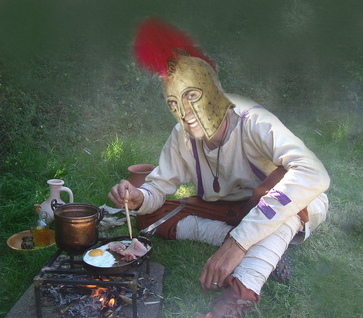Hello all, Brian here, I’m once again using my immense knowledge of the universe to improve your lives. Today, as you probably know is “the longest day” and all over the planet people are celebrating but how many of us know why? The answer is, like so many of today’s inventions, down to our old friend the Romans.
Before the Roman’s no one had any idea about time nor had they noticed that some days were noticeably longer than others. In fact it was the ancient Greeks in about 550BC who first discovered night time, before that people were probably too dumb to care. Anyway in about 220BC a roman scientist and cloud watcher called Cumilus Nimbus noted that at on some days he could apparently watch clouds for longer than others. He got his friend, a jeweller called Timexius Swatchius, to invent the sandclock (the forebare of the egg timer) so Cumilus could time the hours in the days, and sure enough his hunch was correct. Some days were longer. After 6 years of study Mr Nimbus declared that one day in particular was longer than all the others put together, but due to human error he believed the longest day was April 14th. It wasn’t until 15AD that another scientist, and coincidentally also a cloud watcher, Stratus Fractus did further lengthy studies and correctly identified that June 21st was actually most often the longest day. To celebrate the momentus occasion, his friends Blackerus and Deckius invented the barbecue to cook food for the Gods. Mr Fractus didn’t stop with a longest day, as in later life he also discovered there was a shortest day, and he was overjoyed as that almost coincided with the birthday of his good friend and neighbour Jesus, which meant party time! So there you go, another Did You Know This fact complete. I’m off to the pub now as I’ve got a bet on with the Pet Shop Boys to see who can drink the most pints of beer in daylight hours. Thanks, Prof Brian Cox.
(Above) A Roman centurian enjoys one of the first Longest Day barbecues


